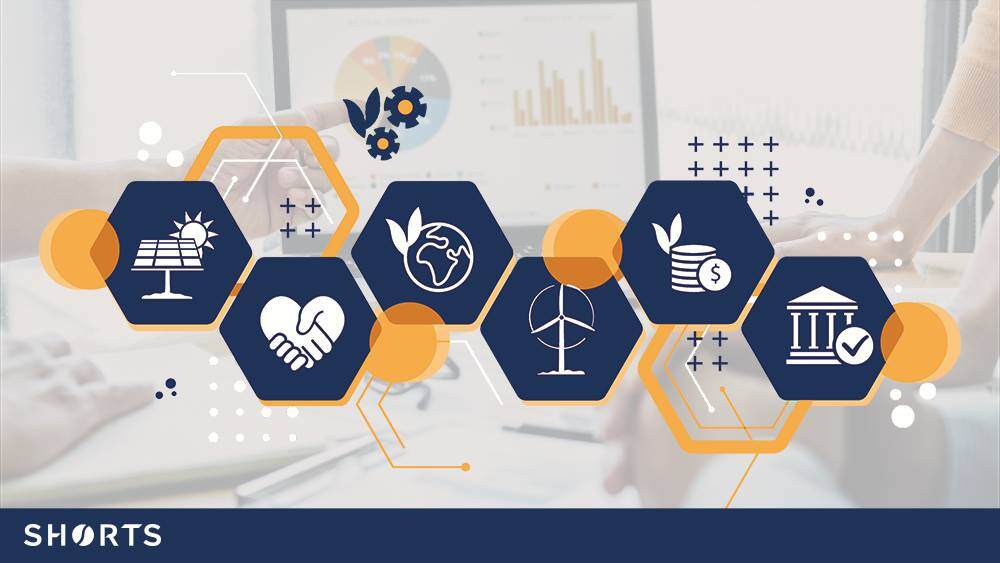
ESG is here to stay. Environmental, Social and Governance factors are becoming integral to how businesses worldwide operate. Indeed, companies are seeing mounting investor pressure, evolving regulatory requirements, and a general public that expects greater sustainability and social responsibility from businesses.
This is why it is essential to monitor ESG development closely, regardless of your business’s current policies. So, here are some of the top ESG trends your business should be aware of in 2026.
Anti-greenwashing
The growing appeal of ethical investing and greater public interest in sustainability has driven an increase in “greenwashing”.
To greenwash is to make misleading or unsubstantiated claims about an organisation’s environmental impact or sustainability efforts in order to appeal to investors or gain more customers.
Greenwashing is effectively a misrepresentation of a company's ESG performance and a contradiction of ESG principles.
The UK has become a leader in anti-greenwashing policy, and the Financial Conduct Authority (FCA) has introduced various regulations to tackle it, including the Sustainability Disclosure and Labelling Regime.
This means firms must ensure that any claims about sustainability are accurate and not misleading. Disclosures must also be made about the sustainability of financial products. Non-compliance will likely lead to ESG failure and may have legal implications.
Anti-greenwashing is becoming a critical component of the broader ESG landscape in the UK.
Sustainability reporting for small companies
Current ESG and sustainability reporting regulations principally target larger companies whose carbon footprint and social impact tend to be higher. However, there are growing expectations for small companies to report on these factors, too.
There is no specific legislation compelling smaller companies to produce sustainability reports yet; however, smaller companies may start facing greater pressure from clients or investors who wish to see sustainability information.
Many smaller companies are already voluntarily reporting on their sustainability efforts to enhance their reputation, attract more customers, satisfy investors and open up green financing options.
Expect more small companies to benefit from submitting sustainability reports amid growing expectations, even if they aren’t mandatory yet.
A greater emphasis on technology
More businesses are investing in technology due to increased reporting requirements, and the administrative burdens that they bring.
Collecting ESG information from various sources can be highly complex, and major tech companies hope to facilitate ESG initiatives by introducing new features to make it easier to report on and analyse sustainability with their existing systems.
Better and more accessible data means businesses can monitor their ESG performance more easily, and respond with appropriate measures in a timely way.
As the demand for ESG monitoring tools continues to grow, we expect that they will become more widely available to smaller businesses with smaller budgets.
Sustainable (green) finance
The popularity of sustainable bonds and loans is growing, which suggests continuing shifts in investor attitudes towards projects that are environmentally sustainable or beneficial.
The UK is a global leader in sustainable finance, with initiatives such as the Green Finance Strategy, the Taskforce on Climate-related Financial Disclosures (TCFD) and Green Taxonomy.
Lenders are also stressing the importance of green finance. According to the Lloyds Banking Group:
“Banks are increasingly making more green finance available and accessible to fund green projects such as wind and solar farms, and to invest in businesses themselves to help them become greener. Banks, therefore, play an essential role in helping people and businesses to access the money to support environmentally-friendly activity.”
Expect green finance to play a critical role in the future as UK businesses target net zero.
Greater AI involvement (and risks)
In 2026, AI is impossible to ignore. It is no surprise that rapidly evolving AI tools are being deployed for ESG and sustainability efforts, and more businesses are doing just that.
Generative AI, its designers suggest, can be used to facilitate a variety of vital sustainability efforts, including optimising resource utilisation, analysing more ecological data, and accelerating the development of clean energy solutions.
However, AI does pose several sustainability risks, including the vast amounts of energy consumed by its data centres, the proliferation of e-waste, and increased natural resource consumption to produce the required hardware.
Expect AI to be ubiquitous to corporate sustainability efforts in the future, as we continue to discover both its potential for sustainability as well as its societal and environmental risks.
More supply chain scrutiny and transparency
A key driver of ESG is the growing public awareness and consciousness of ethical goods and services. If a company has a lengthy supply chain, it can be challenging to ensure it is free from negative environmental or social impacts.
From labour exploitation to environmentally damaging logistics, pressure is mounting for companies to be transparent and take more ethical approaches to not only their production but also their supply chain relationships.
Expect technological advancements (such as the blockchain) to be more widely used for tracing and applying accountability throughout the whole supply chain.

Matthew Lewis
Matthew is a Senior Audit & Accounts Manager at Shorts. He is a Chartered Certified Accountant with experience with Big 4 and Top 10 firms. His experience includes audit and financial reporting, across a wide range of businesses and sectors.
View my articlesTags: ESG
